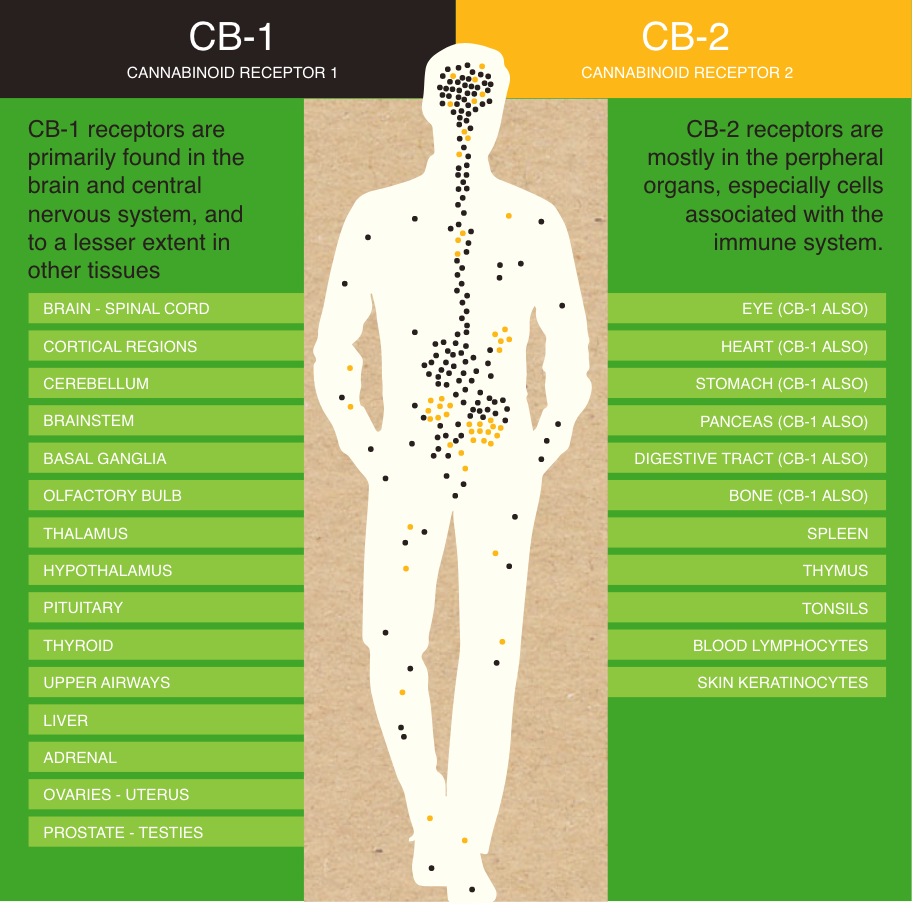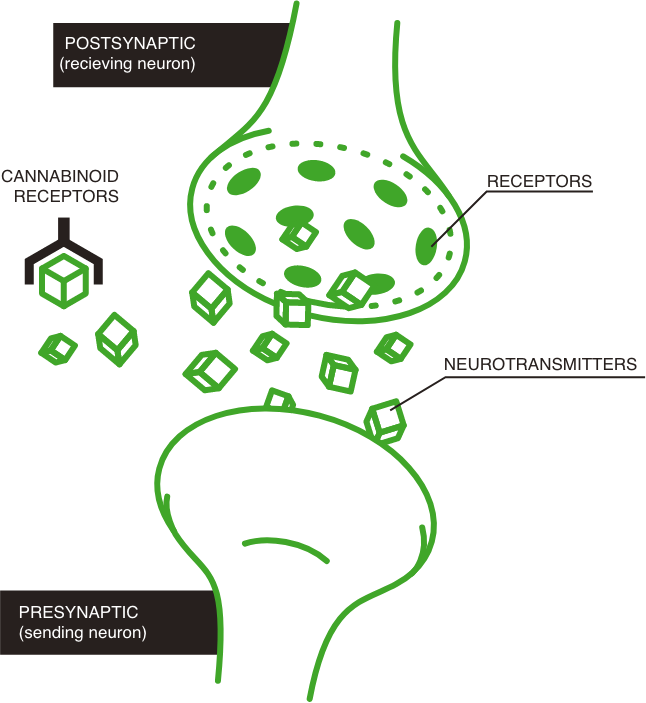
THESCIENCE of CANNABIS
The more we know about cannabis, the better we will understand its benefits. Here, we share our most accurate and up-to-date information about the plant and the cannabis industry.
The more our patients know how cannabis works on a biological level, the easier it is to navigate our catalog and choose the most applicable products to their needs.
COMMONCANNABIS FORMS

SUBLINGUALS
ONSET: Within 15 minutes
|DURATION: 2 to 3 hours
Discreet | Good for beginners | Quick-acting
With the sublingual method, cannabis is typically in the form of a strip or oil that users place underneath the tongue. When using sublinguals, medication is quickly absorbed through the mucous membrane underneath the tongue, providing quick, convenient relief.
HOW IT ALL WORKS
The endocannabinoid system (ECS) is an endogenous biological system composed of endocannabinoids, molecules produced by the body for a variety of purposes including the regulation of certain physiological and cognitive processes. The two main endocannabinoids that scientists have discovered are the anandamide (AEA) and 2-arachidonoylglycerol (2-AG) neurotransmitters.
WHAT IS THE ENDOCANNABINOID SYSTEM?
In essence, the endocannabinoid system moderates different processes in the body by connecting these endocannabinoid molecules to the corresponding cell receptor. Similar processes are commonly seen in other biological systems including the immune, endocrine, and reproductive systems.

Within the body, signals to the endocannabinoid system are caused by endocannabinoids binding to one of two primary receptors, either CB1 receptors or CB2 receptors. CB1 receptors are common in the central nervous system, whereas CB2 receptors are usually found in association with the immune cells inside of the peripheral nervous system.
WHAT DOES IT DO FOR MY BODY?
The most recent research into the endocannabinoid system has scientists believing that its function is centered around maintaining homeostasis, the equilibrium of internal, physical, and chemical conditions within the body. In particular, the ECS has been found to be involved in regulating a variety of functions and processes, including fertility, mood, memory, appetite, sleep, and the immune system.

Deep within the body, the process shown on the left is constantly happening in the endocannabinoid system. To regulate different functions and processes, the ECS utilizes CB1 and CB2 cell receptors and endocannabinoid neurotransmitters. These cell receptors, depicted as empty slots in the example, bind with endocannabinoids to communicate a variety of messages to the body’s cells.
WHAT ARE CANNABINOIDS?
Cannabinoids are chemical compounds commonly found in cannabis and produced by the human body. The three types of cannabinoid compounds are endocannabinoids, phytocannabinoids, and synthetic cannabinoids.

ENDOCANNABINOIDS
Anandamide (AEA) and 2-arachidonoylglyerol (2-AG) are both endogenous, lipid-based neurotransmitters found within the human body.
PHYTOCANNABINOIDS
Phytocannabinoids are naturally-occurring cannabinoids produced in the trichomes of cannabis plants. Examples of phytocannabinoids include CBD and THC, the two compounds commonly used as medication for a variety of different ailments.
SYNTHETIC CANNABINOIDS
Synthetic cannabinoids are manufactured cannabinoids used in many ways, including as an alternative for traditional cannabis use. Δ8-THC can be an example of a synthetic cannabinoid. While it is naturally occurring in very low levels in cannabis, most products on the market today produce Δ8-THC in the laboratory using an acid to create a chemical reaction. At Dragonfly, we believe in natural whole plant medicine and never use synthetics in our products.
SO WHAT?
Developing an understanding of the endocannabinoid system allows patients to learn more about the effects of cannabis on the human body. Cannabinoids are able to produce a variety of different positive benefits for users and are becoming increasingly available as acceptance of cannabis as a medical treatment becomes more widespread. By choosing the product that is right for them, patients can reap the proven benefits of this medication and directly control their own conditions.